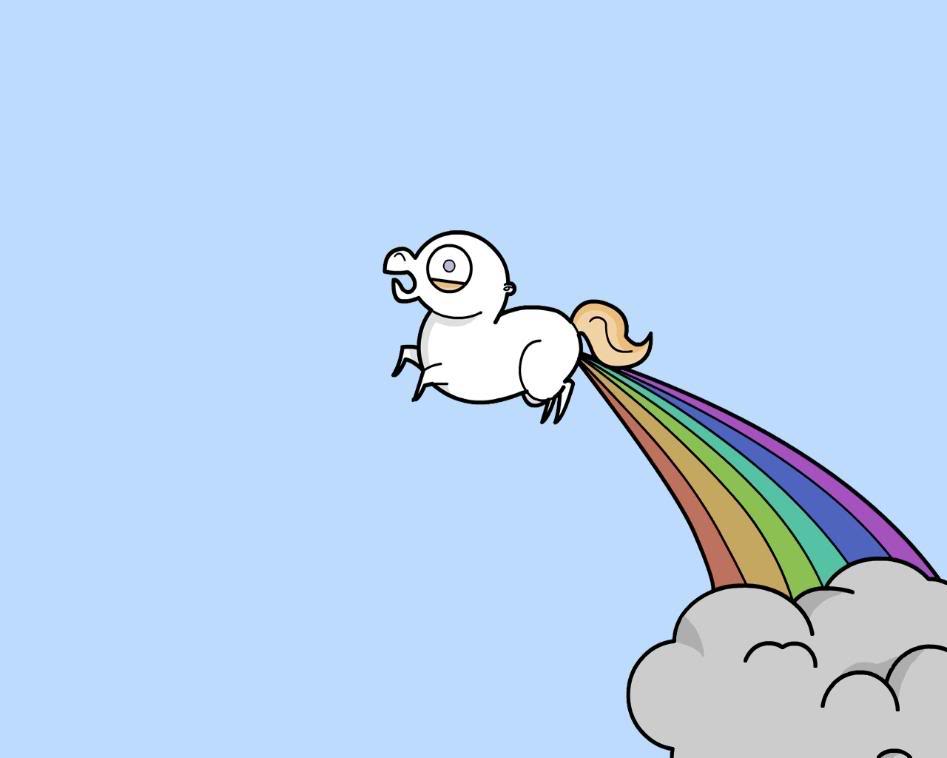Every student in the depths of depression goes through that particularly steep and lugubrious slump. Honestly, it’s more like a cliff. Full of electric eels and piranhas and alligators, who keep mauling away at any bit of hope you may have left.
What if you could turn those bloodthirsty blues into a pool of rainbows and unicorns? Well, not exactly. But pretty damn close.
All you need is a mantra. Here are the magic words: work within the gravitational field.
Sorry, that’s not a reference to Gravity.
But it’s nonetheless solid advice.
There are two minefields we step into when we’re depressed: the future and the past. The latter is relatively simple—you wish you could change something you did. But you can’t. You can’t change the past. Argument over. Talk to me when you step through a wormhole and end up with your thigh attached to your face, or an extra set of eyes under your armpit.
The future—aye, she’s a tricky one. Depending on the way you perceive what is to come, you can either end up in a pool of your own tears and blood (the result of papercuts while crying and leafing through your ex’s photo album, of course), or you can get a fucking grip, grit your teeth, and grin through those horrid weeks.
Ideally, you want to choose the latter. It always ends up a mix of both, though. We simply want to minimize the one where you sink yourself deeper into a pit of self-loathing and pity.
This is where gravity comes in.
Imagine this overly-elaborate and seemingly-unrelated scenario: a newspaper intern is hired for the summer, and he’s doing relatively well—bringing the coffee, unjamming the printer, even writing a little piece for the paper once in a while. But then he does something stupid: he overshoots his mark and decides he wants to be a full time reporter now. Stuck with the notion that he’s too good to be an intern all of a sudden, he stops being speedy with the coffee, the printer remains jammed and the office is lagging because a millennial twat (no offense to 99% of my readers, of course—but I can say it because I’m 22) decided he’s too good for mundane tasks that he was assigned to.
Something similar happens when you overshoot your thought processes. Let’s use subject A’s—Loverboy’s—thoughts as an example: “She never loved me!” Loverboy thinks. And then he shakes his head angrily and retorts, “I never wanted her anyway!” and then it goes back to, “we’re never going to be together again!” and… well, ad nauseam. Despite the only thing that’s corporeal to Loverboy is the shower floor and the empty bottle of vodka, he gets stuck in his head about what might come.
Now imagine he’s working within gravity, within the limits of the day—the limits of his current, veritable environment. In this mindset, the only questions that should float to mind are, “why haven’t I finished showering if it’s 4am already and I went in at midnight?” and “this empty bottle of vodka means I’ve probably drunk texted her several dozen times already and that I’m going to have one shitty morning.”
Loverboy is now working within gravity. The sadness is there but he handles the tasks at hand—turning off the shower nozzle, throwing the empty bottle into the bin and hitting the hay.
If there was no gravity we would float away into space. Unfortunately, our brain has no hemisphere. We float into the clouds and freeze and stagnate and get stuck. That’s why we must create our own gravity and work within it.
Dale Carnegie mentioned to live in day-tight compartments. It’s the same exact principle as working within gravity. Take the day in chunks and don’t overshoot your bounds or you’ll get stuck.
Now, this doesn’t mean you’ll be traveling to that pool of rainbows and unicorns anytime soon, but there will an inherent sense of “I’ll get through this in the near future” as you crunch your teeth between the stream of tears and type that term paper up the day before it’s due.
Au revoir.
———————————————————————————————————
Aleksandr Smechov, Baruch College.
Follow the Campus Clipper on Twitter and Like us on Facebook!
Interested in more deals for students? Sign up for our bi-weekly newsletter to get the latest in student discounts and promotions and follow our Tumblr and Pinterest. For savings on-the-go, download our printable coupon e-book!












